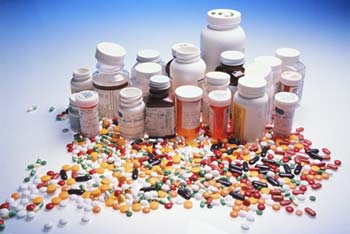Generic Heart Drugs as Effective as Brand Names
 According to a new review, generic heart drugs are just as good as brand name drugs at a fraction of the cost. The generics have the same active ingredient as their brand-name counterparts, though they may differ in color or shape, and cost anywhere from 30 to 80 % less, despite which some doctors and patients hesitate to use generic drugs preferring brand names.
According to a new review, generic heart drugs are just as good as brand name drugs at a fraction of the cost. The generics have the same active ingredient as their brand-name counterparts, though they may differ in color or shape, and cost anywhere from 30 to 80 % less, despite which some doctors and patients hesitate to use generic drugs preferring brand names.
Dr. Aaron S. Kesselheim, lead author of a study and an instructor in medicine at the Harvard- affiliated Brigham and Women’s Hospital in Boston said, "We found no evidence that brand-name drugs are any better in terms of clinical outcomes than generic drugs. The FDA [U.S. Food and Drug Administration] has approved all generic drugs and certifies that they are bioequivalent, meaning equivalent in all biological and chemical characteristics of the drug."
The research published in Journal of the American Medical Association by researchers at Harvard Medical School who analyzed 47 studies of nine types of drugs from 1984 to August 2008. Blood thinners, cholesterol pills, blood-pressure medicines and treatments for irregular heartbeat were among the medicines examined. The researchers found that while just a few of the studies found slight differences between generic and certain brand name drugs, they were not statistically significant when the data was pooled. A similar situation was found among drugs with a so-called narrow therapeutic index, meaning the difference between the recommended and lethal doses was less than twofold. Despite this out of the reviewed editorials 23 or 53 % expressed a negative view on recommending generic drugs; twelve supported it while eight did not reach any conclusion. Almost half of the trials and nearly all of the editorial and commentaries did not identify funding sources. "We found no evidence that a brand-name drug is clinically superior," Kesselheim said.
The difference between clinical data and opinion could be as the doctors writing the editorials may rely on anecdotal evidence rather than actualities or may have financial ties to the brand-name drug makers, the authors said. “Brand-name manufacturers have suggested that generic drugs may be less effective and safe than their brand-name counterparts,” they added. “Anecdotes have appeared in the lay press raising doubts about the efficacy and safety of certain generic drugs.”
"There are a number of studies out there saying that generic drugs should be an important part of a physicians prescribing treatment, that they're able to reduce costs and improve patient adherence which can lead to better patient outcomes," Kesselheim said. "Generic drugs are available for nearly every condition but generally are underused in the marketplace, and one of the reasons they're underused is that there is a perception out there among physicians and patients that brand-name drugs are better than generic drugs."
Ken Johnson, senior vice president of the Pharmaceutical Research and Manufacturers of America, a Washington-based trade group representing brand-name drug companies, supports “patients receiving the medicines that are best for them, including both brand-name medicines and generic drugs. Without today’s innovative brand-name drugs to legally copy, there would be no generic drug industry,” Johnson said.